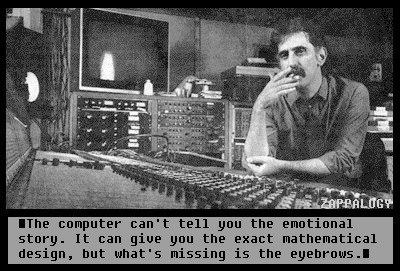And exactly how do you know what feedback sounds like other than its bad it must be feedback? The Spectral with its wide bandwidth is using plenty of feedback. Perhaps it is good because of it.
You can try reading Bruno Putzey's paper where he takes the position there is no such thing as too much feedback as long as it is a stable system. The more the better.
http://www.linearaudio.nl/linearaudio.nl/images/pdf/Volume_1_BP.pdf
Nelson Pass disagrees. IMO he makes some of the best solid state around, proof is in the pudding, as they say.
A little 'FWIW': if you apply Chaos Theory to amplifiers, the ones with negative feedback are the Chaotic systems. Norman Crowhurst charted their Strange Attractors about 55 years ago.








